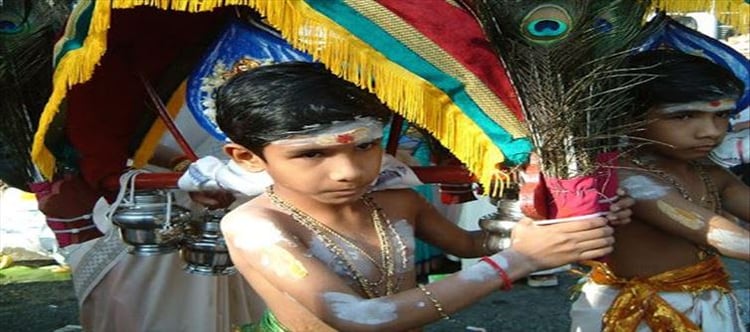
Thaipoosam Kavadi: A festival of devotion and Penance!
Thaipoosam is one of the most significant festivals celebrated by Hindus, particularly by tamil communities in India, Sri Lanka, Malaysia, and Singapore. The festival honors Lord Murugan, the god of war, and is observed on the full moon day of the Tamil month Thai (January–February) when the Poosam (Pushya) star aligns.
The highlight of Thaipoosam is the Kavadi Attam, a sacred ritual symbolizing devotion and penance. "Kavadi" refers to a physical burden carried by devotees as an offering to Lord Murugan. The Kavadi is often a semicircular wooden or bamboo structure adorned with flowers, peacock feathers, and images of deities. Some devotees undertake extreme forms of penance by piercing their skin, cheeks, or tongue with spears or hooks. Others pull chariots with hooks attached to their backs, believing that their devotion will help them overcome hardships.
The festival begins with devotees preparing through fasting, prayer, and abstinence from worldly pleasures. Many carry milk pots (Paal Kudam) on their heads, symbolizing purity and gratitude. The grand processions feature chanting of hymns, traditional music, and fervent dancing, creating an electrifying spiritual atmosphere. The most famous Thaipoosam celebrations take place in palani (Tamil Nadu), Batu Caves (Malaysia), and Sri Thandayuthapani temple (Singapore), attracting millions of devotees.
Thaipoosam Kavadi is more than a ritual; it is an expression of faith, endurance, and gratitude. Devotees believe that carrying the Kavadi helps them seek Lord Murugan’s blessings, remove past sins, and overcome obstacles in life. The festival exemplifies the power of faith and the triumph of good over evil, making it a deeply revered occasion for Hindus worldwide.




 click and follow Indiaherald WhatsApp channel
click and follow Indiaherald WhatsApp channel